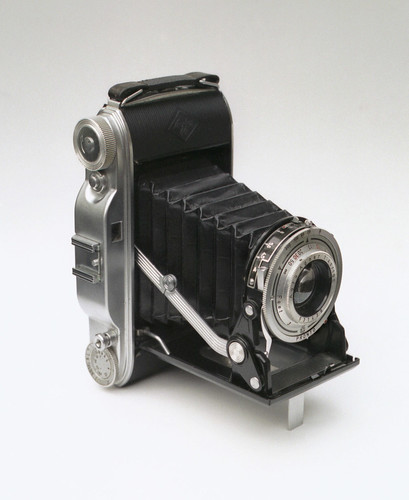 |
| Agfa Record I |
The
Agfa Record I was the camera that got me into the 6x9cm format. I had previously used a
Zeiss Ikon Nettar camera, which was my first folding camera, picked up form a charity shop, but found the 75mm focal length on the 6x6cm negative just a little wide, and I've also thought that the square format does require more consideration when composing the image. 6x9cm was the negative size that 120 medium format film was initially designed for, introduced with Kodak's
No.2 Brownie camera in 1901. At the time most amateur photographs were contact printed from negatives rather than enlarged (a fact which lead to much larger roll negative sizes, such as the 122 postcard format); 6x9cm, although small by modern standards, was just acceptably large enough for snapshots. As I've previously written about in my post for the
Baldalux camera, the folding 6x9 format camera is an ideal travelling companion, a good compromise between portability and negative size.
There were three models of
Agfa Record cameras: the Record I was the least expensive model; models II and III were not successive designs of the Record, but contemporaneous, more sophisticated and expensive models with better lenses and shutters (the top-of-the-range Record III also featured an uncoupled rangefinder). The Record I was supplied with a 105mm f4.5 Agnar lens, Agfa's own triplet lens, which has front element focus down to 3 feet, and stops down to f32 (an aperture setting which I may never have used), in a four speed Pronto shutter (25, 50, 100, 200 plus B).
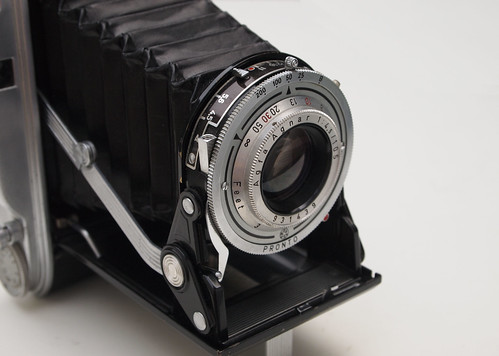 |
| Agfa Record I - Lens and shutter detail |
The camera is simply and robustly constructed. The metal body is covered in leatherette with a pattern of fine cording, providing a good grip. To open the camera, the front catch button is nestled beside the large winding knob, and when pressed the lens pops out into position with a snap, and the shutter release on the body also pops up. The arms lock to hold the lens and shutter quite rigid. Unlike the
Voigtländer Bessa RF from my previous post, the shutter linkage is a solid bar along the bed underneath the lens. The viewfinder is relatively large compared to other folding cameras of similar date. Focus is by estimation: there are markings around the lens of distances in feet, with 30 and 10 picked out in red; there is also a red dot next to f11. These settings must be for 'view' and 'group' shots: with the focus set for 30 feet, at f11, depth of field extends from infinity to just short of 13 feet; set at 10 feet, it's a bit broader than 8 to 13 feet.
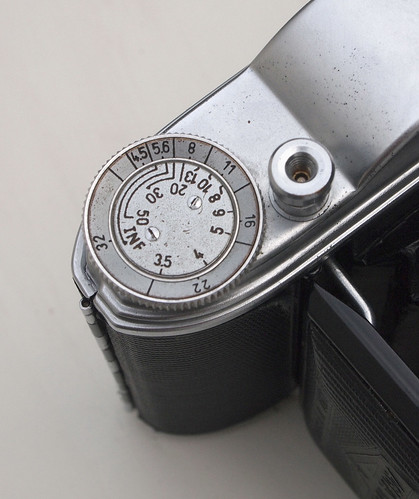 |
| Depth of field scale |
Using both the Nettar and subsequently the Record I were amongst my earliest experiences of using guess focus. I did also have a Lomo LCA at the time, but this has a wide angle lens on a small format: with the longer focal lengths of medium format folding cameras, compared to standard lenses on 35mm, for the first time calculating depth of field became very important. The Agfa Record's depth of field scale (in the image above) was extremely useful. The outer ring rotates so it is possible to align the small tick in the aperture section on the outside against the focus setting inside. With experience, guess focus for anything other than near scenes at wider apertures is relatively easy, but when I began using the camera, this small scale calculator was a welcome reassurance. I used the camera very frequently over a period of about three years, taking it abroad and on a number of protests and demonstrations. I inadvertently dropped it onto the pavement during the first of the student fees protests in 2010, which put a dent in the bottom, deforming the body just a little to make opening and closing the camera rather more tight than previously, but otherwise it still worked fine. Despite being fitted with the
lowest specification lens, the negative size is very forgiving, especially when used with smaller apertures. The Pronto's four shutter speeds were restricting on occasion but I found, for its simplicity, the Agfa Record a pleasant camera
to use.
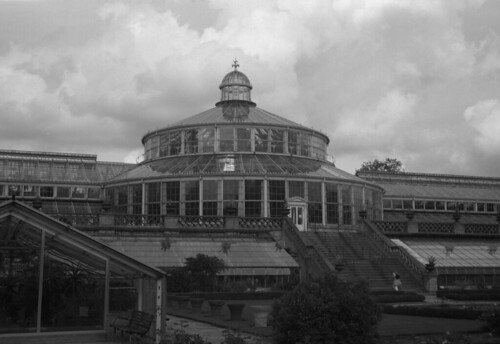 |
| Agfa Record I with Ilford Delta 100 |
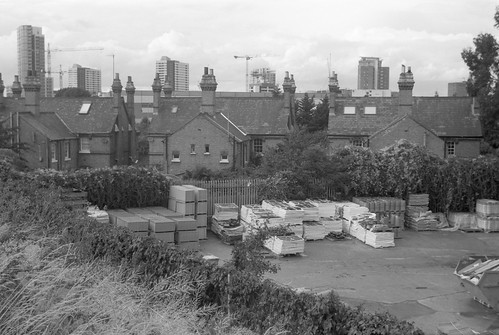 |
| Agfa Record I with Adox CHS 100 |
 |
| Agfa Record I with Ilford Delta 400 |
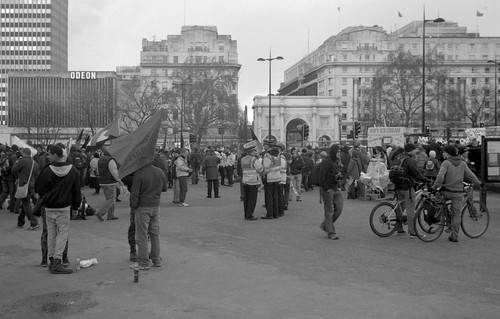 |
| Agfa Record I with Ilford HP5 Plus |
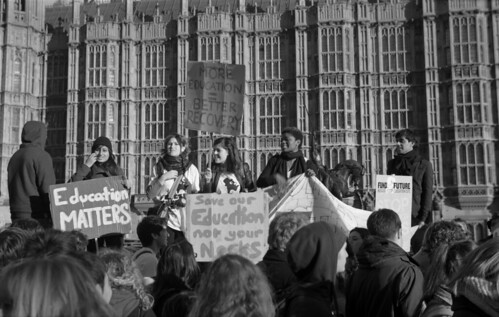 |
| Agfa Record I with Fomapan 400 |
Sources/further reading:
Agfa Record cameras at Camera-Wiki
Agfa Record I at Historic Camera
Agfa Record and Billy Record Cameras at Certo 6








No comments:
Post a Comment